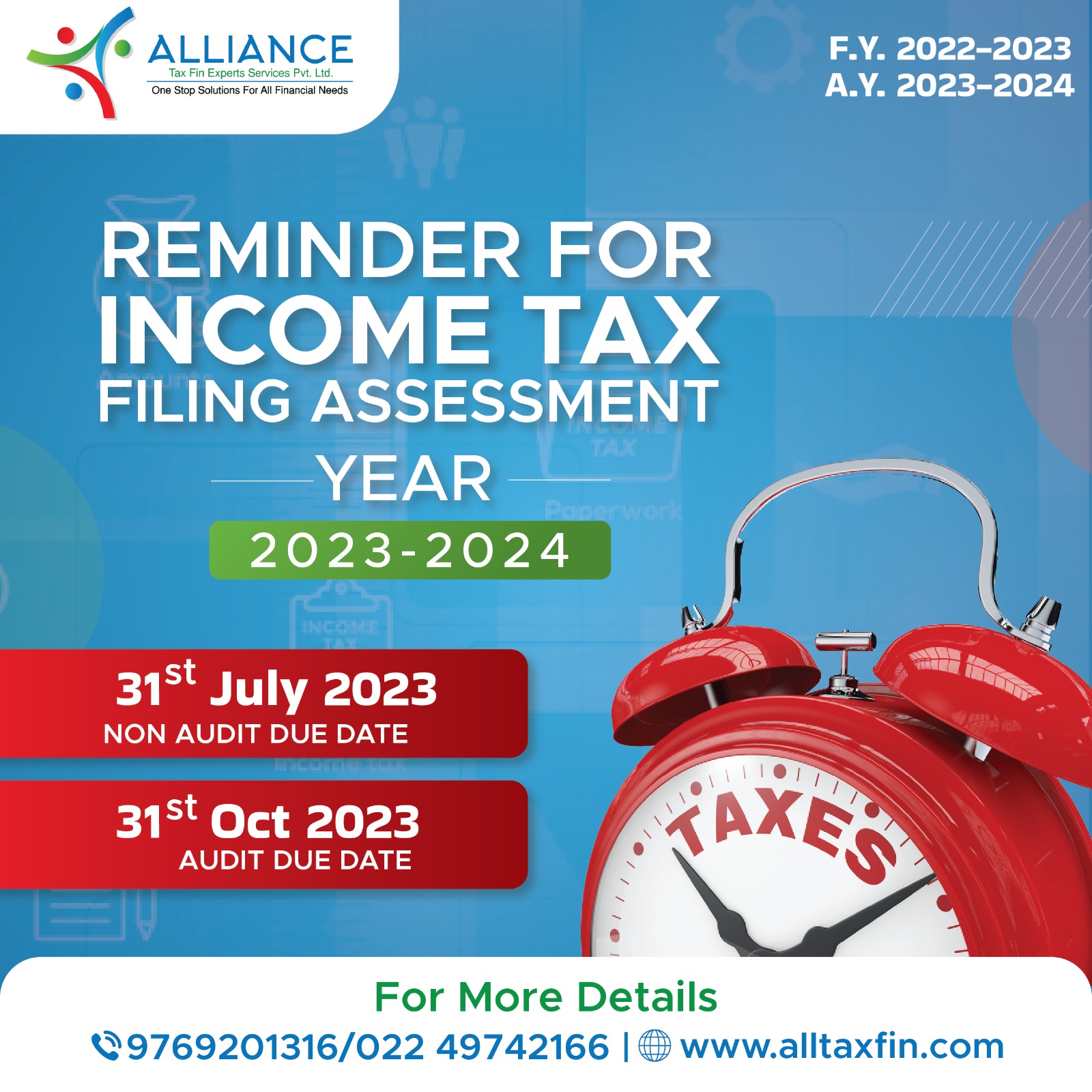
13 Jul
Simplifying Income Tax Filing Due Dates and Important Considerations
Simplifying Income Tax Filing: Due
Dates and Important Considerations
Introduction:
Income
tax filing season is here, and it's essential to stay on top of the deadlines
and requirements to ensure a smooth and hassle-free process. Whether you are a
salaried individual or a business owner, understanding the due dates and
necessary steps for filing your income tax returns is crucial. In this blog
post, we will provide you with valuable information about the non-audit and
audit filing due dates, along with important considerations to make your tax
filing experience more manageable and stress-free.
Non-Audit Income Tax Filing (Due Date: 31/07/2023):
For
individuals and businesses who are not required to undergo a tax audit, the due
date for filing income tax returns is 31st July 2023. This deadline applies to
individuals earning income from various sources, including salaries, house
property, capital gains, and other non-audit categories. By adhering to this
deadline, you can avoid penalties and unnecessary complications.
Audit Income Tax Filing (Due Date: 31/10/2023):
If
your income exceeds the prescribed limit or if your business falls under
specific criteria, you may be required to undergo a tax audit. The due date for
filing income tax returns with the audit is 31st October 2023. It is essential
to engage the services of a qualified Chartered Accountant to ensure accurate
reporting and compliance with tax laws. Filing your tax returns with an audit
requires scrutiny of financial statements, supporting documents, and adherence
to specific reporting standards.
Key
Considerations for a Smooth Income Tax Filing:
1. Maintain Accurate Records: Keep
track of your income, expenses, and investments throughout the financial year.
Organized record-keeping simplifies the tax filing process and helps you claim
eligible deductions and exemptions.
2. Seek Professional Assistance: While online portals may seem convenient and
cost-effective, it is crucial to prioritize data security and accuracy.
Engaging the services of a professional tax consultant, like Alliance Tax
Experts, ensures personalized advice, a comprehensive understanding of tax
laws, and meticulous attention to detail.
3. Plan for Tax Savings: Proactive
tax planning can help you optimize your tax liability. Explore available
deductions, exemptions, and investment options to legally reduce your tax
burden and maximize your savings.
4. Timely Filing and Payment: Adhere to the prescribed due dates for filing
your tax returns and paying any outstanding tax liabilities. Late filing or
non-compliance may result in penalties, interest, and unnecessary stress.
5. Stay Informed: Keep yourself updated with the latest tax regulations, changes,
and announcements. Regularly review government notifications, consult with tax
experts, and participate in relevant seminars or webinars to enhance your tax
knowledge.
Conclusion:
Filing
your income tax returns is a legal obligation that requires attention,
accuracy, and compliance. By understanding the due dates, seeking professional
assistance, and adopting best practices for tax planning, you can streamline
the process and ensure a smooth filing experience. Remember, the expertise of a
qualified tax consultant can help you navigate complex tax laws, optimize your
savings, and achieve long-term financial well-being. So, don't compromise on
the quality of your tax filing; choose professional services for peace of mind
and successful outcomes.
For
personalized assistance with your income tax filing, contact Alliance Tax
Experts at 9769201316 or email us at santoshpatil@alltaxfin.com. Our team of
experienced professionals is ready to assist you in your tax journey and ensure
your financial well-being.
#IncomeTaxFiling2023 #TaxFilingTips #SmoothTaxExperience #ProfessionalTaxConsultants
#ComplianceMatters #AllianceTaxExperts #ca #audit #tax
#taxreturn